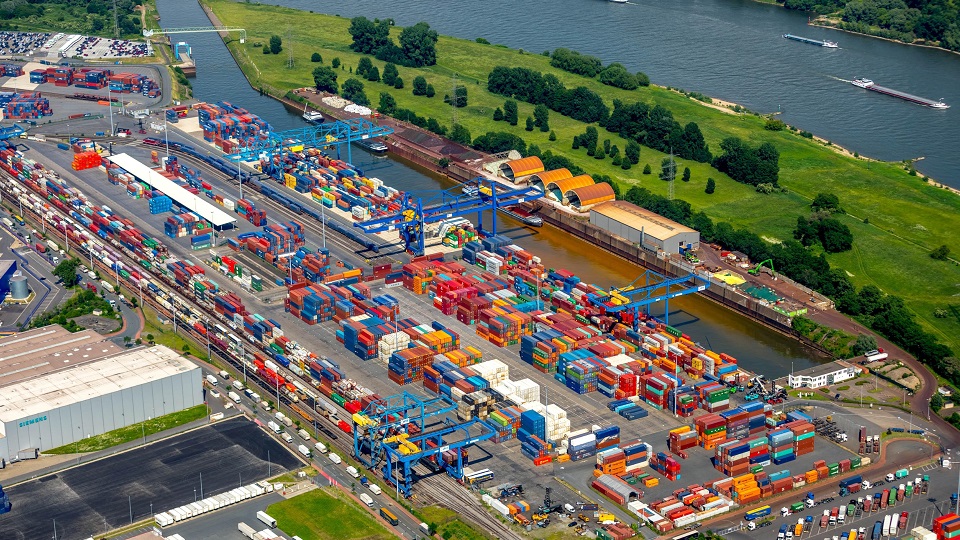PSA to replace COSCO as shareholder in Duisburg Gateway Terminal

Singaporean logistics giant PSA International is on course to acquire a 22 per cent minority share in the Duisburg Gateway Terminal (DGT), which is currently under construction. PSA’s initiative will lead the company to somehow replace COSCO, which renounced its shares in the DGT last year.
As PSA mentioned, “the transaction is subject to the approval of Germany’s competition and supervisory authorities”. Once this happens, the company will join Hupac, duisport, and Dutch inland shipping group HTS. COSCO used to own 30 per cent of the terminal’s shares, which were sold to duisport in June 2022, even though the deal was kept secret until October.
The Duisburg Gateway Terminal
The project for the DGT, which will be the largest inland terminal in Europe, was launched in 2019 for a total investment of 100 million euros. Initially, the money was supposed to be financed by Duisport and COSCO, with 30 per cent each, and by Dutch inland shipping group HTS and Hupac, with 20 per cent each. It remains to be seen if and how PSA’s entrance into the DGT will change the financing scheme.
The terminal will be built on the Coal Island of the German port over an area of 220,000 square metres. There will be six cranes, twelve rail freight platforms of 730 metres each, five loading zones, three berths for barges, and an area of 60,000 square metres for container storage. The first construction phase is expected to be completed in the first quarter of 2024.
RailFreight Connects
Ports in Europe have been increasing their investments in rail projects all over the continent but many questions still need to be answered. How can this synergy be implemented efficiently? What do ports need to do? What does the rail industry need to do? What can institutions do? These questions will be answered during the RailFreight Connects 2023 in Bremen on 6- 7 September 2023! Will you join the crucial discussion? You can register here.
Also read:




